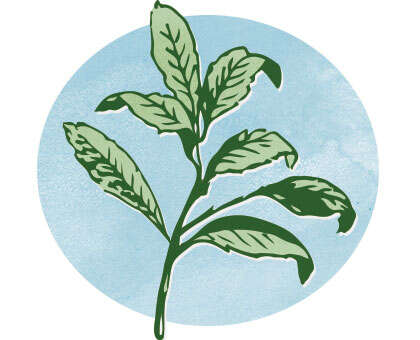Wild Tongmu Jin Jun Mei
Wild Tongmu Jin Jun Mei

"Us farmers, we are just here to help nature. We work for the tea.
This place is not something we made; this is a gift from nature." - Li Xiangxi
- DATE OF PICKINGSpring 2021
- TongmuWuyishan, Fujian
- ELEVATION1000 METERS
- MIXED WILD XINGCUN XIAOZHONGTea Varietal
- DATE OF PICKINGSpring 2021
What is Wild Tongmu Jin Jun Mei?
Wild Tongmu Jin Jun Mei is foraged and wild picked up in the mountains of the officially designated Tongmu region of the protected Fujian Wuyishan National Nature Reserve (福建武夷山国家级自然保护区).
Wild Tongmu Jin Jun Mei is picked one bud at a time, entirely by hand, and entirely by native residents living within the reserve. The tea plants are wildly propagated by seed, and are left untended. This natural selection creates genetic variation and diversity between each standalone tea bush. Each bush grows between one and three meters high, and grows out of cracks in the volcanic rock of the Tongmu mountains.
Wild Tongmu Jin Jun Mei is the rarest and most labor-intensive tea that the Li Family offers, and one of the most in-demand teas in the world. Every year we have the chance to reserve just a pound or two of this tea months in advance before the harvest, and still haven’t been able to get enough to offer for a long time. This year conditions lined up perfectly and we got two pounds of this tea from the LI Family.


These buds are hand picked from the Li Family’s piece of land on the mountain slopes above their ancestral home, inside the Fujian Wuyishan National Nature Reserve. The buds are hand finished by the Li Family and sun-roasted to fully oxidize as a traditional black tea. This Wild Tongmu Jin Jun Mei represents the earliest harvest possible in the Tongmu region, undertaken by Li Xiangxi, her brother, her cousins, and her parents.
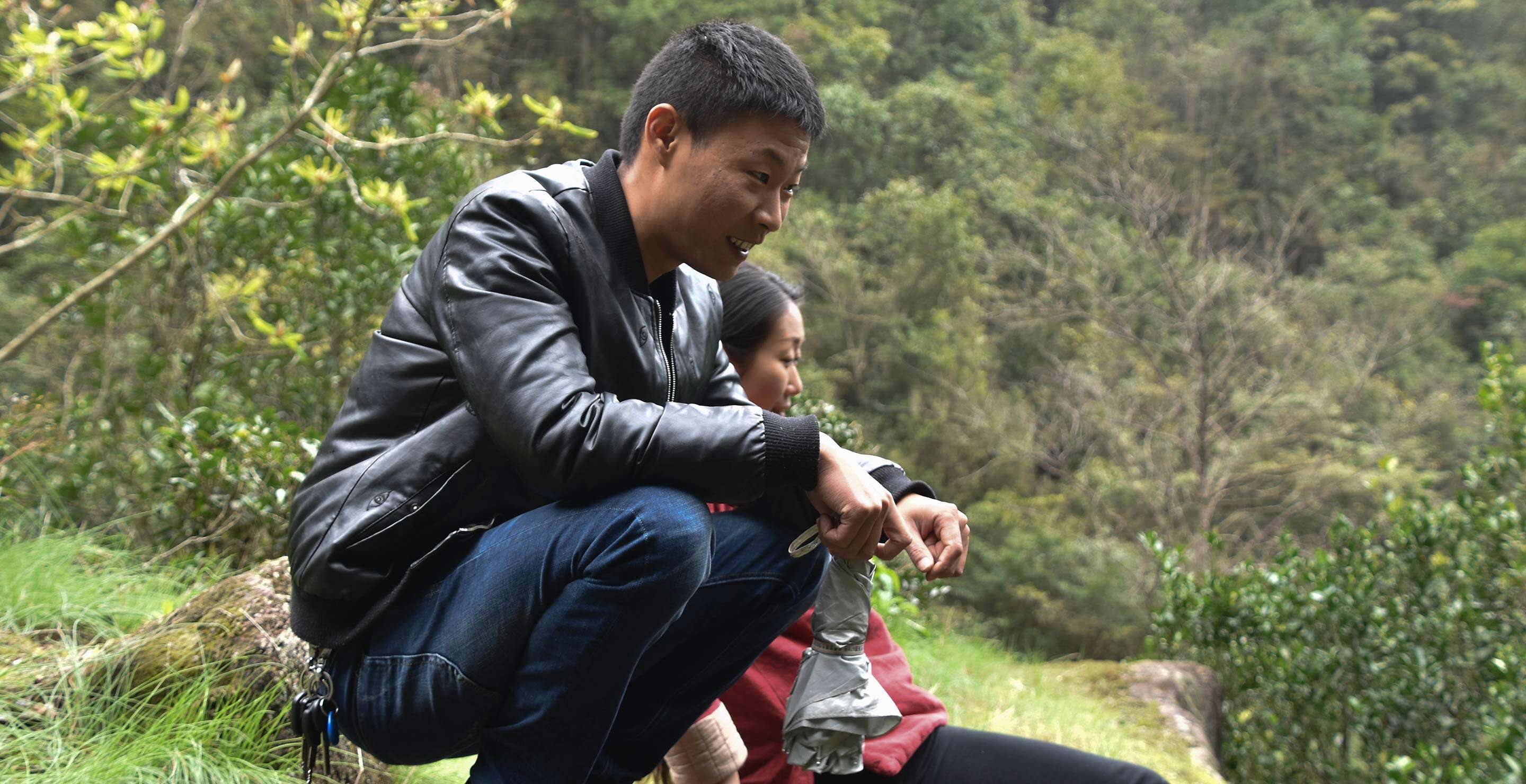







What makes Wild Jin Jun Mei so valuable?
First Harvest Wild Tongmu Jin Jun Mei is currently one of the most sought after teas in the world. It is valuable because it is admired so greatly by connoisseurs in China for its singular and unique texture and aftertaste.
Tongmu is a tiny region that has been designated for special protection and recognition. Non-residents are not allowed into the preserve without special approval and sponsorship from a resident. The annual yield of the entire region is nowhere near enough to satisfy the demand.
The region of Tongmu is unique within the Wuyishan region for its volcanic rock formations, and extremely thick vegetation coverage and biodiversity. Nestled along either bank upstream of the Jiuqu (Nine Bends) Brook, the mountains create a unique microclimate, perfect for many species of birds and a healthy ecosystem. Mountain spring water springs out of the ground and runs down every slope, and the rocky land and cold weather make for slow-growing but singularly incredible tea.
Tongmu is a tiny and incredibly protected region of the Wuyishan Ecological Preserve - a park within a park where special rules apply. Tourism is prohibited to protect the natural environment - a pristine oasis of old-growth evergreen trees, bamboo, and volcanic cliffs with mountain-spring waterfalls.
Among the rocks are wild Xingcun Xiaozhong tea plants that have been growing for generations and have continued to propagate from seed, leading to massive natural variation. These wild plants are not neatly arranged in a grove. Instead, they require serious rock-climbing to reach individual tea trees. Each plant produces buds at slightly different times, meaning that to capture the iconically tiny beautiful perfect Jin Jun Mei buds, the Li Family has to hike their known mountain paths daily for weeks, harvesting tiny yields that get even smaller when the tea is traditionally oxidized, fired and dried.
Yet the beauty of the buds and the incredible textural experience of tasting them creates incredible demand for the Li Family’s Jin Jun Mei. Indeed, tasting the tea is like being transported to the Li Family home in Tongmu, a true portrait of place, a quiet meditation on the power of texture and aftertaste.




To produce just one kilogram of early harvest Tongmu Wild Jin Jun Mei, five kilograms of fresh leaves are needed. One kilogram of fresh leaf takes twelve to fourteen thousand individual buds, each picked entirely by hand.


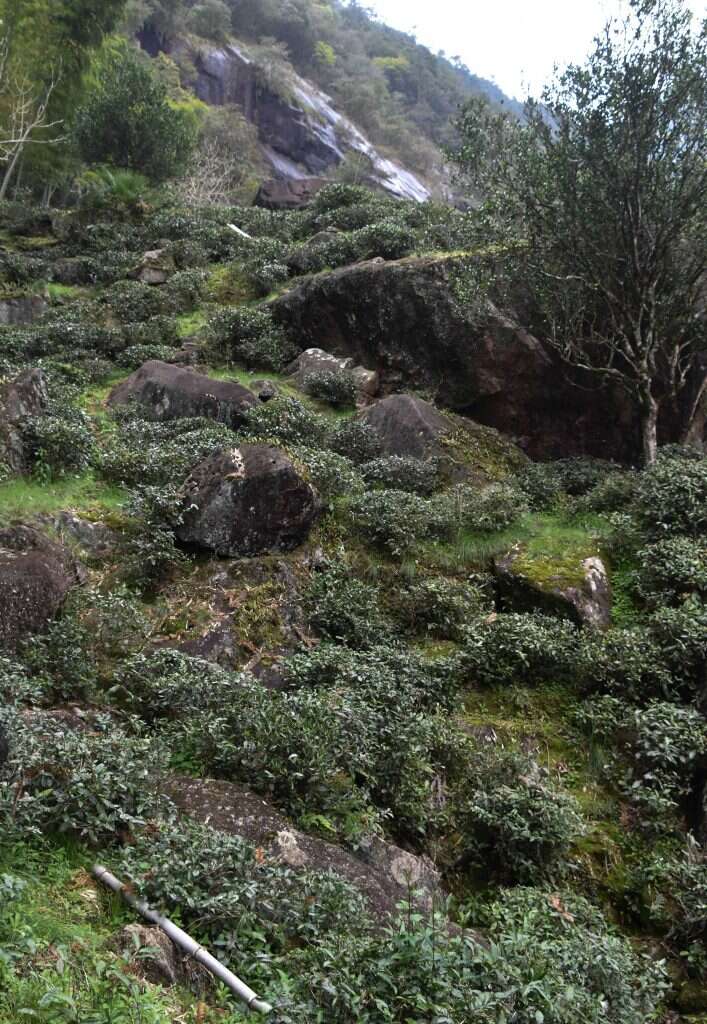

A single tea bush will only produce 50 to 100 grams of buds, meaning that it is necessary to hike high into the mountains to forage even a small amount of this tea. Every bush is wildly propagated, which means that different individual bushes all bud at different times. This makes it necessary to hike the mountains of Tongmu every day of early spring to make sure you’re picking the buds when they are still tiny and delicate and perfect for Jin Jun Mei. The steep mountains and rocky terrain make this harvesting dangerous work for everyone in the Li Family.
The incredible amount of labor required, the steep domestic demand and tiny supply make this one of the most valuable teas coming out of China, with demand for genuinely wild Jin Jun Mei growing every year.


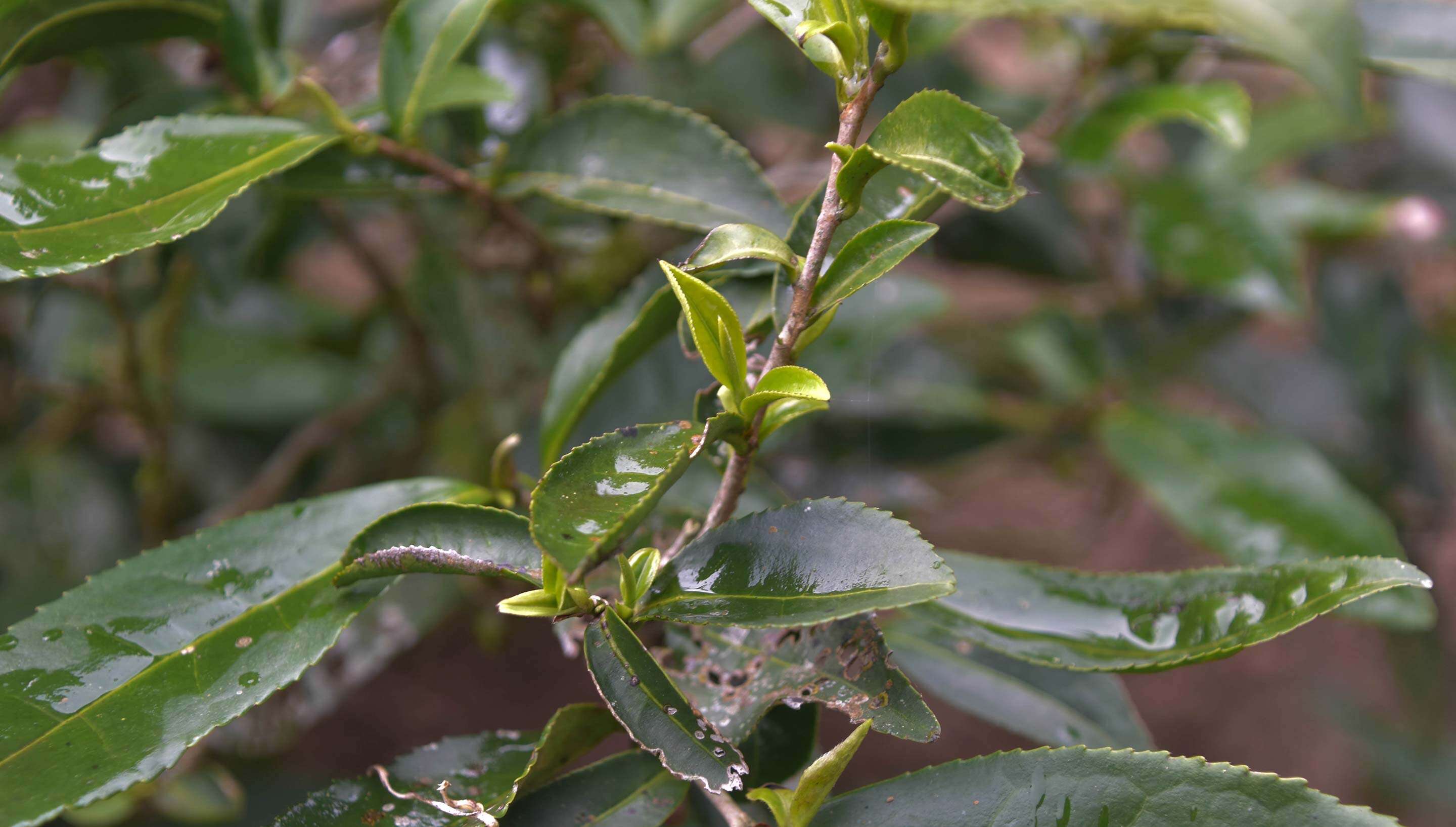

How is it different from Tongmu Reserve Jin Jin Mei?
Wild Tongmu Jin Jun Mei and Tongmu Mei Zhan Jin Jun Mei both share the same soil and microclimate but taste extremely different and come in at wildly different price points.




Wild Tongmu Jin Jun Mei is wild-foraged from bushes growing on the steep mountainsides behind the Li Family’s ancestral home in Tongmu Reserve, while Tongmu Reserve Jin Jun Mei is picked from cultivated plantings.
Cultivated Jin Jun Mei allows for a much more uniform golden color and iconic roasted sweet potato honeyed flavor, while wild tea has huge variation in flavor and color since it is propagated from seed, yielding a deep, powerful textural tea.
The Li Family loves both harvests, but the Wild Tongmu Jin Jun Mei commands a much higher price both for the huge additional investment in labor to hike the mountains daily over several weeks to time the harvests just right and for the massive Chinese demand for wild teas.
You should get whatever sounds like it fits your taste. Both are available in small sizes so that you can taste and compare.




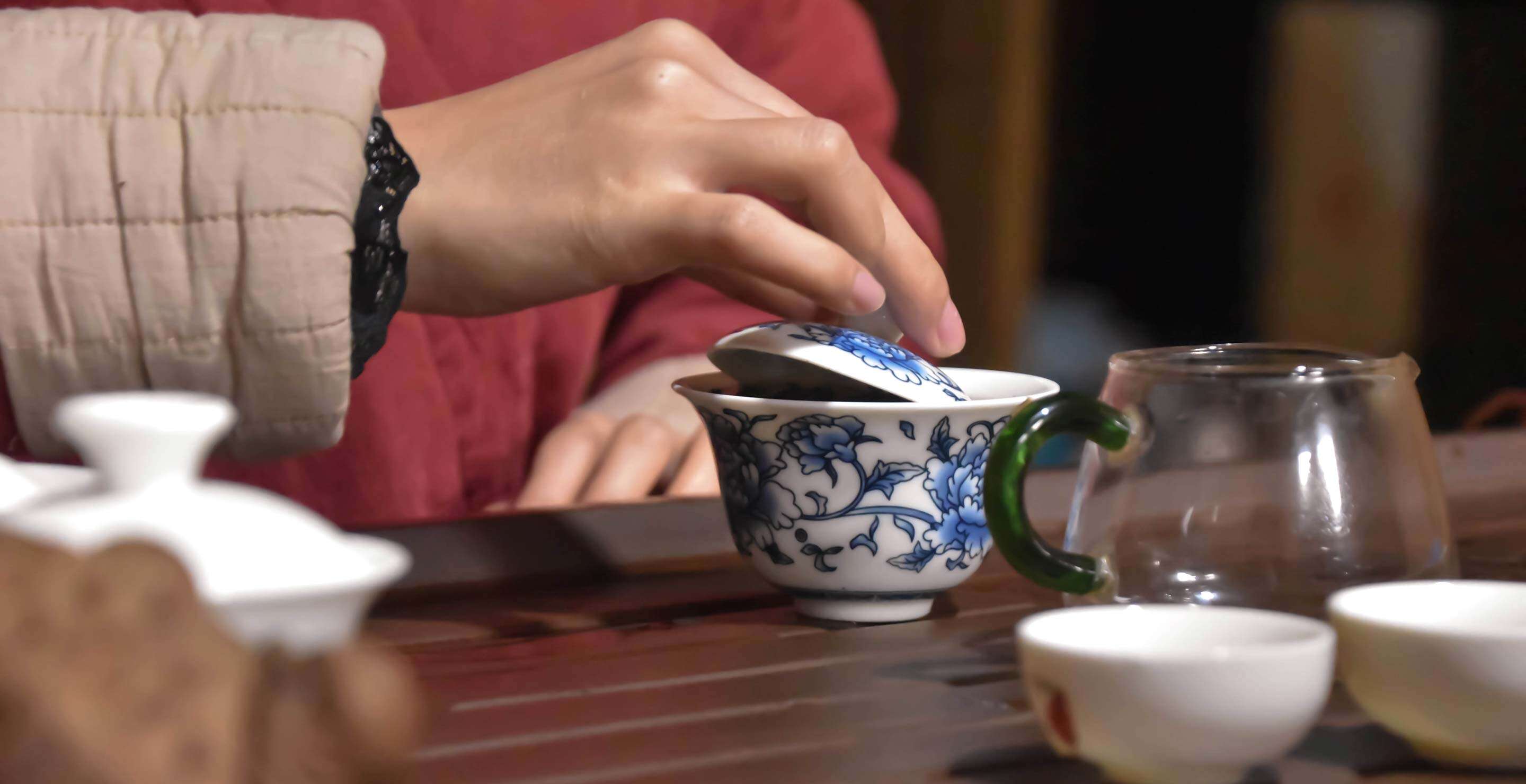

Is it worth it? Does it taste that different?
Wild Tongmu Jin Jun Mei is an experience unlike any other black tea.
This tea is completely unique.
This tea is a very quiet
and very contemplative tasting experience.
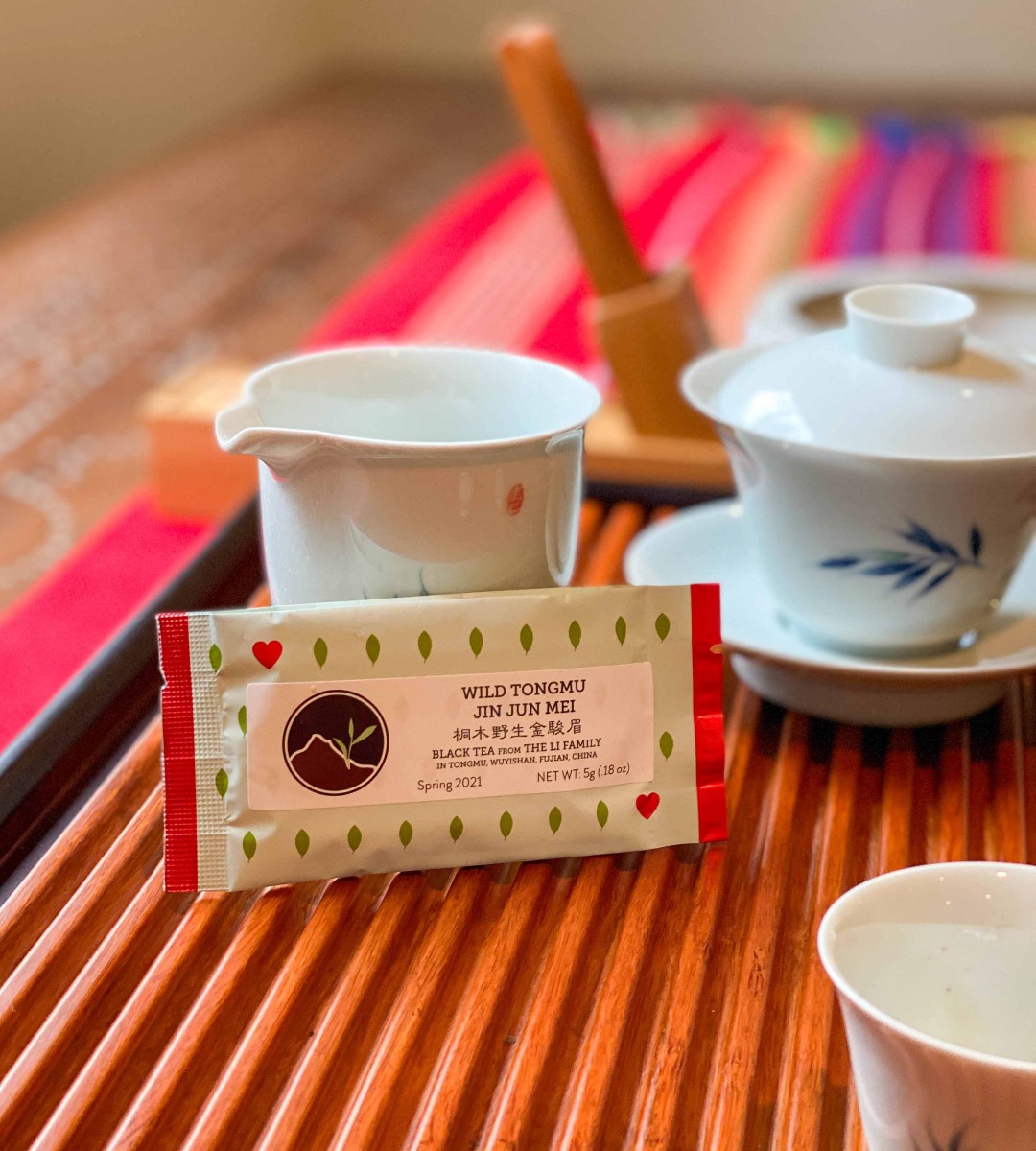

Li Xiangxi normally only picks this tea by commission because it is so intensive to produce. This year, we were lucky to be able to commission one half kilo.
Li Xiangxi wanted to share this tea because it is the clearest, most perfect expression of the flavor of her family’s mountain plot in Tongmu. It is a textural experience that evokes the mountain spring water, the dramatic rocks, the bamboo forests.


At $26 for a single serving, this tea comes in at the same price as a bottle of mid-range wine, and delivers a much more thrilling textural, aftertaste-focused experience, steeps out more liquid, serves more people, and lasts longer. We poured over thirty steepings with our five gram packet when we tried this tea for the first time, and the tea only seemed to get stronger and fuller each steeping instead of lighter.
We wouldn’t drink this tea every day.
We wouldn’t drink this to find a big, bold, black tea,
or when we want the cooling electrical yun sensation.
However, this tea is absolutely worth trying.
Save a few packets for those perfect, quiet afternoons
when you wish to taste tea as a meditative act.


So, what does it actually taste like?
The aroma of the wet leaf is that almost tropical with notes of jasmine, but also of deep spice-laden aloeswood incense and a touch of cedar. Breathing in the aroma, it is already so powerful it creates a cooling sparkling sensation in the back of the throat even before the first sip.
Tasting the tea, it is light and textural like the best spring water ever, like drinking straight from a rock face in Wuyishan. There is a light sweet bamboo quality and tropical florals. Then a fine dense buddy texture takes over and the tea gets sweeter and sweeter on the tongue, mouth watering like star anise and rock candy.
As the tea continues to steep out, it seeps into the tongue, powerful and juicy like honeyed mandarin orange with the salty spice and subtle florals of fine aloeswood. It also tastes like being in the Li Family’s ancestral home, built generations ago from aromatic pine.
This tea is a very quiet experience, a way to focus on texture, and the sense of place.




Why is this tea sold by the single serving?
This tea is truly rare.
We were only able to obtain one half kilogram this year.
We want to give as many people as possible the opportunity to try this tea. We also want to offer single servings to bring this opportunity within reach for more people given the cost per gram. A larger package would be prohibitive for many people interested in the tasting opportunity.
This tea is packaged to ensure the correct quantity of leaf in a single brew. Single serving packets take the guess work out and ensure the best taste experience.
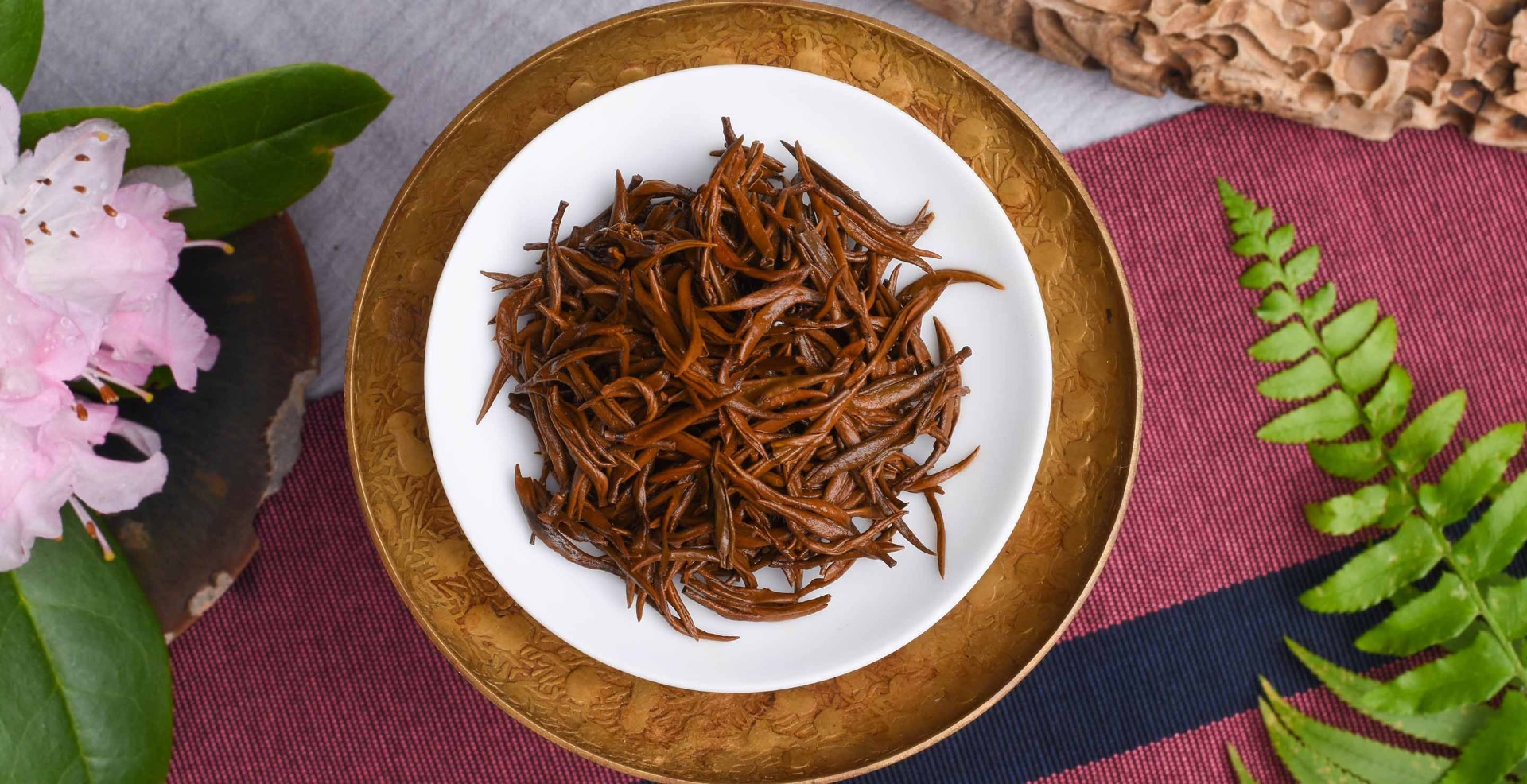

How should I brew this tea?
This tea took so much care to pick and finish.
For an experience that truly reveals how special this quiet and subtle tea can be, a degree of care is needed in brewing.
If at all possible, please use a fine porcelain gaiwan.
Jingdezhen is highly vitrified and shows the truest aroma. Longchuan porcelain and Dehua porcelain also both work well. The goal is to use a porcelain vessel that holds 5fl oz of water or less, as highly vitrified and fine as possible.
Source sweet, full bodied spring water for brewing.
We use Chippewa Spring water here in the midwest, but there are other sweet, full bodied spring waters available around the country. In a pinch, waters like Fiji and Evian can work well.
When you brew, do not use a strainer.
Strainers will destroy the texture of this tea by filtering out the bud material.
Bring your water to a full boil. Pour a small amount into your gaiwan to heat the porcelain. Pour over your cups and pitcher to get everything to a good temperature. Once your tools are warmed, add the entire 5g packet to your gaiwan.
Do not brew with near-boiling water.
Pour boiling water into your pitcher and cool for about 15-20 seconds. This extremely buddy tea will yield the most beautiful texture when brewed with cooler water. Pour in a circle along the edge of your gaiwan to introduce the water to the buds gently. Immediately pour out. Practice holding your gaiwan to strain all leaes with the lid and try not to pour any into your pitcher.
Smell the wet leaves and present them to your guests.
Discard the first steeping as a rinse. Then you can begin brewing this tea.
Keep your water at boiling and cool each infusion for 15-20 seconds to have precise control. Steep your tea for about 5-8 seconds in early infusions. After 15-20 infusions, you can raise your water temperature by cooling for only 6 seconds and slowly increase steep times, up to about a 45 second infusion.
Take your time. Enjoy at least twenty – thirty steepings.

 Black Tea
Black Tea Li Xiangxi – Wuyishan
Li Xiangxi – Wuyishan




